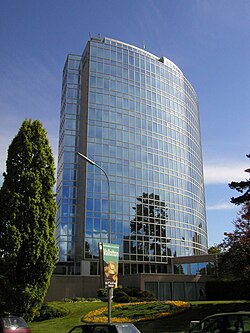

Crappytire.com was a website and domain name at the centre of a 2001 spat between Canadian retailer Canadian Tire and London, Ontario resident and website owner Mick McFadden. Canadian Tire, which alleged that McFadden was cybersquatting as the public had associated "Crappy Tire" with its trademark name, took the case to the World Intellectual Property Organization (WIPO). By June 2001, the WIPO decided against Canadian Tire, stating that the company did not own the rights to the "Crappy Tire" expression. [1] In 2002, Canadian Tire purchased the Crappytire.com domain, along with Crappytire.net and Crappytire.ca. [2] [3]